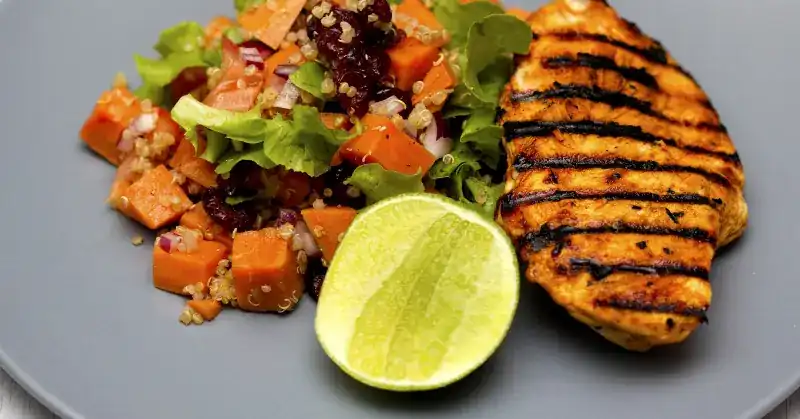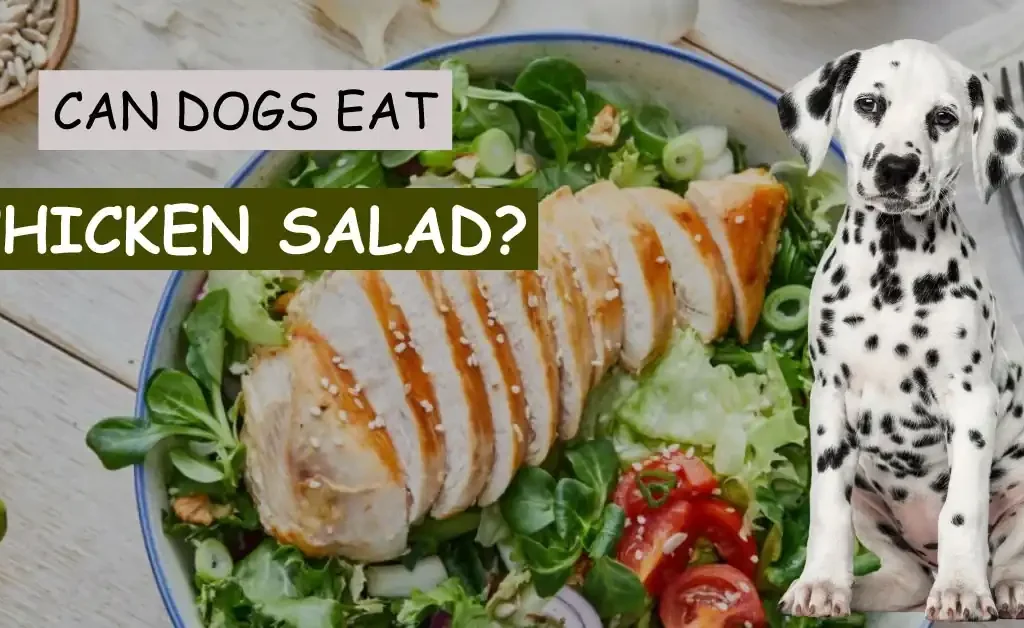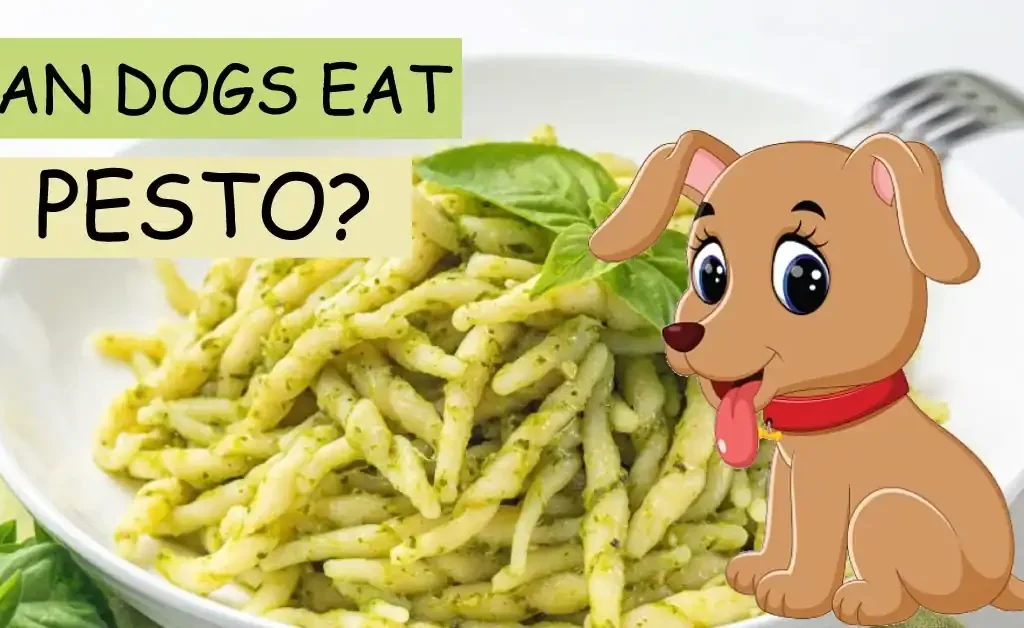Imagine enjoying an outside meal with a delicious chicken salad as the main course on a bright afternoon in a park. Your devoted canine friend begs for a taste while you enjoy every mouthful with those adorable puppy eyes.
Many dog owners encounter this situation daily, which raises the question of whether dogs can enjoy a chicken salad or if it should be off-limits to them. Can dogs eat chicken salad?
In this culinary investigation, we go into the world of canine eating etiquette to solve the puzzles surrounding the suitability of chicken salad for our canine companions. Join us as we examine the components, consider the nutritional effects, and discuss the dos and don’ts of feeding your pet dog this human delicacy.
Does Chicken Salad Go Well with Dogs?
Choosing to give your dog chicken salad is complex. While essential, cooked chicken can be a good source of protein for dogs, the standard components in chicken salad might provide issues. Mayonnaise, onions, garlic, grapes, raisins, and other spices are common ingredients in chicken salad recipes; these ingredients may be poisonous or hazardous to dogs.
For instance, mayonnaise is heavy in fat and might cause digestive problems or even pancreatitis in canines. Garlic and onions have a high toxicity level that can harm a dog’s red blood cells and result in symptoms like weakness and sedentary behavior. It is well known that grapes and raisins are poisonous and can cause renal failure in dogs.
The best action is to avoid giving your dog chicken salad, mainly if it contains these popular components. If you want to give it to your dog, ensure the chicken is simple, cooked, and free of any flavors, sauces, or possibly dangerous ingredients.
Before adding new items to your dog’s diet, always check with your veterinarian to ensure they meet your dog’s nutritional demands and health requirements. Remember that your dog’s health should come first when choosing its diet.

Read more: Can Dogs Eat Olives?
Potential Health Issues of Feeding Chicken Salad with Certain Ingredients
It’s essential to consider the ingredients and how chicken salad fits into your dog’s overall diet, even if it can offer some nutritional advantages to them. Lean protein, a crucial component of a dog’s diet, may be found in plenty of chicken, a typical ingredient in chicken salad.
Following is a summary of how the components of chicken salad may or may not satisfy your dog’s nutritional requirements:
1. Chicken
Chicken is an excellent source of protein for dogs because it provides a plentiful supply of vital amino acids required for muscular growth and maintenance. Because of its leanness, it is a lean, low-fat protein choice.
Furthermore, how the chicken is prepared is very important. It must be unseasoned, thoroughly cooked, and devoid of sauces, condiments, or additions. Steer clear of chicken bones since they might splinter and pose a risk of choking, which may result in internal damage.
2. Mayonnaise
Can dogs eat chicken salad with mayo? Chicken salad frequently contains mayonnaise, which is high in fat and calories. A dog’s diet should include some fat, but too much fat might cause obesity and other health problems.
Commercial mayonnaise frequently contains hazardous dog additives, including garlic or onion powder. These compounds are dangerous in any amount, even minute quantities. Mayonnaise is not a good source of healthful fats for dogs, either.
3. Garlic with Onions
Garlic and onions, typically used in chicken salad, are incredibly harmful to dogs. They contain substances that can harm a dog’s red blood cells, causing anemia and other serious health issues.
It is essential to monitor the quantity of onions or Garlic, which should not be included in your dog’s diet, so stay away from chicken salads that contain these components.
4. Seasonings
Many chicken salads contain seasonings, herbs, or sauces that dogs might not like. The high sodium content of these condiments can cause salt toxicity or sodium ion poisoning in dogs.
Herbs and spices can sometimes be poisonous to dogs or might upset their digestive systems. Giving your dog basic, unseasoned meals is advisable to reduce these hazards.
5. Vegetables
When served in moderation, lettuce, commonly included in chicken salads, is typically safe for dogs. Vegetables may also contain fiber, vitamins, and minerals.
However, not all veggies suit dogs, and some could irritate their digestive system. Always introduce new veggies gradually, and watch for any negative responses in your dog.
6. Avocado
Although avocados are beneficial sources of healthy fats, unfortunately, furry friends should not swallow them because avocados can cause the toxicity of persin. Your furry friend might be unable to digest this avocado, which ultimately will cause blockages and can lead your dog to a surgical operation.
This avocado pulp harms the pancreas by causing inflammation and, if not treated well, leading to pancreatitis. Avoid giving your dog avocado pulp regularly, which is the leading cause of pancreatitis.
7. Saturated Fats
According to a study, 1 cup of chicken salad contains around 32 grams of saturated fats. As per the dog’s diet system, 32 grams of saturated fats is of high concern. Fats are beneficial for the body and essential for the body’s mechanism, but having an increased amount of saturated fats can lead to life-threatening conditions.
It increases the bad cholesterol level, causing blockage in the workings of vital organs, mainly the heart, leading to heart attack, pancreatitis, and weight gain in your furry friends.
8. Stomach Upset
Due to their delicate digestive processes, dogs might upset their gastrointestinal equilibrium by introducing fatty, foreign meals like chicken salad.
Dogs who eat chicken salad frequently have digestive problems, including diarrhea, vomiting, flatulence, and stomach pain. Your dog may get dehydrated and have discomfort due to these digestive issues.
9. Possibility of Choking Risks
Depending on how it was made, a chicken salad may contain nuts, tiny bones, or bone fragments that separate from the chicken chunks. These can be dangerous for dogs to choke on.
Injury to the mouth, throat, or digestive tract from choking or eating bone shards needs rapid veterinarian care.
10. Allergic Responses
Certain veggies or spices, frequently included in chicken salad, may cause allergies or sensitivities in particular dogs. Itching, skin irritations, ear infections, and digestive disorders are examples of allergic responses that can cause pain and health concerns.
11. Nutritional Imbalance and Excessive Calorie Intake
Due to the high-fat content of chicken salad, excessive calorie consumption can potentially cause obesity in dogs.
An excessive intake of fatty foods might throw off the ratio of essential nutrients in your dog’s diet, depriving them of other crucial elements required for their health.

Also read: Potential Risks of Feeding Pumpkin to Your Dog
Can dogs eat chicken salad with mayo? There are better options than chicken salad for meeting your dog’s nutritional needs, even though plain, cooked chicken can be a valuable addition to their diet. Focus on dog-friendly foods and speak with your veterinarian about portion sizes and dietary suggestions catering to your pet’s needs.
Is a Grilled Chicken Salad Safe for Dogs?
Can dogs eat a grilled chicken salad? Although grilled chicken salad may have fewer potentially dangerous elements than regular chicken salad, it is still advisable to proceed with caution when feeding it to your dog. Although essential, thoroughly cooked, and devoid of condiments, sauces, or dangerous chemicals, grilled chicken may be a beneficial source of protein for dogs.
Vegetables in salads are typically safe for dogs as long as they are not seasoned with unhealthy spices or dressings. However, ensuring the salad doesn’t contain poisonous elements, like onions or garlic, is crucial.

What salad can dogs eat? Even though grilled chicken salad could be a better choice than regular chicken salad, it’s still a good idea to speak with your doctor before giving it to your dog to ensure it complies with their particular dietary demands and health requirements. Always put your dog’s health first and use straightforward dog meals wherever you can.
Considerations for Allergies and Sensitivities in Dogs
Can I safely feed my pet chicken salads? Dogs are more sensitive than humans. Their delicate digestive systems easily get compromised whenever they eat human foods with extra seasonings, such as those found in chicken salads.
As responsible pet parents, we must exercise precautions while feeding chicken salad to them. The following are the considerations for avoiding allergies and sensitivities in our canine partners.
1. Find Nutritional Needs
Always prioritize your pet’s health and nutritional requirements. It is best to consult a vet to determine their nutritional needs. This strategy helps you select a balanced diet to meet their dietary demands.
2. Offer Plain, Cooked, or Boiled Chicken
Chicken is the best source of protein, which helps in muscle growth, boosts energy, and provides benfits for the overall health mechanism of the body. In preparing chicken for your furry friends, some pointers should be kept in mind to keep them safe and healthy.
Select plain, cooked, unseasoned boiled chicken or turkey for your dogs to provide adequate protein content without harmful health consequences. Seasonings like salt, spices, herbs, or onions could be toxic to our furry friends.
3. Serve in Moderation
When you start feeding your dog human food like chicken salad, do it in moderation. It is essential to prevent health dangers caused by overfeeding or inappropriate serving sizes in dogs. Start with chunks and increase gradually. Seeking a vet’s guidance is crucial before feeding chicken salad to dogs.
4. Watch Out for Allergic Reactions
While feeding your pup chicken salad, you must closely monitor their reactions. If you find any symptoms like coughing, vomiting, or unusual behavior, immediately stop giving this salad to them. Consult your vet for first aid advice to maintain your pet’s health in severe situations.
5. Serving Sizes
Standard serving sizes of chicken salad for dogs still need to be discovered. However, it is suggested that 2 tablespoons be given to a small dog; for adults, half a cup is enough. You can top your regular dog food with this chicken salad to limit the quantity.
6. Limit Frequency
If your pet loves to indulge in chicken salad, limit feeding frequency. It must not be a part of your dog’s eating regimen. They can enjoy these types of salads occasionally or as a reward.
7. Give Healthy Alternatives
If your dog is allergic to chicken salad ingredients, offering plain or boiled chicken is best. On the other hand, give them fresh vegetables as much as they can tolerate. You can choose commercial dog food treats devoid of harmful components. Consult your vet to find the best dietary advice.
What to Do If My Dog Eat Chicken Salad Accidently?
Accidents can happen anywhere, anytime. It could be with your furry friends. While chicken salad is safe for them in moderation, overeating can lead to several health concerns. As a pet owner, you must be aware of the immediate steps to take if this accident happens with your dog. Let us tell you some basic steps to help prevent further damage to your pet.
1. Determine the Ingredients
Identifying the contents of the salad your dog ingested must be your first step to determine the toxic effects. Check if there were onions, mayo, garlic, or nuts. These are the real cause of health dangers in dogs.
2. Grab Access
Secondly, remove the access bites from your pet’s plate. Moreover, if you can grab some amounts from your pup’s mouth, do it immediately.
3. Watch for Reactions
If your dog actually ingested the overdose of chicken salad with such harmful ingredients, he may show some indications. It includes vomiting, diarrhea, lethargy, and anemia, confirmed with pale gums.
4. Call Your Vet
If your pet has ingested salads with high quantities of onions, garlic, or nuts, it is crucial to contact your vet right away. These contents are nearly lethal to dogs. Rush to the vet’s clinic to get immediate treatment.
Homemade Chicken Salad Recipes for Dogs
It’s simple and secure to make chicken salad at home for your dog. Use this simple recipe to ensure it’s tasty and suitable for your dog’s diet.
Ingredients
- 2 skinless, boneless breasts of chicken
- 1 cup of plain, cooked pasta or brown rice (optional)
- 1 cup of veggies safe for dogs, such as carrots, green beans, and peas
- water to be heated
Instructions
- To begin, thoroughly cook the chicken breasts in boiling water. Ensure neither the water nor the chicken has any flavors, salt, or spices added.
- When the chicken is finished cooking, take it from the liquid and let it cool entirely. You may cut it into bite-sized pieces by shredding or dicing it.
- Prepare the veggies while the chicken cools. Make sure they are dog-safe, unseasoned and spice-free.
- Carrots, green beans, and peas are among the best vegetables. They can be boiled or steam-cooked until soft but not mushy.
- Cooked chicken and veggies should be combined in a bowl. You may incorporate cooked, unflavored brown rice or pasta to increase the salad’s carbohydrate content. Make sure the carbs are correctly prepared, bland, and flavorless.
- This homemade chicken salad should only be given to your dog sometimes as a treat or as an addition to his usual meal. Depending on your dog’s preference, it can be offered either warm or cold.
Consult with your veterinarian before introducing any new food to your dog’s diet to ensure it complies with their unique dietary requirements and potential health issues.
Last Notes
Can dogs eat chicken salad? Remember that serving your dog chicken salad is an easy task. But, since each dog is different and some could have certain dietary limitations or allergies, it’s essential to speak with your veterinarian before making significant nutritional adjustments.
Frequently Asked Questions (FAQs)
Q: Is it okay to feed my dog leftover chicken salad?
A: Because leftover chicken salad may contain elements harmful to dogs, providing plain cooked chicken with no seasonings or dressings is recommended.
Q: Is it safe for dogs to eat chicken salad with ranch dressing?
A: Ranch dressing is high in fat and should be avoided when feeding your dog. Keep it simple with plain, cooked chicken.
Q: Can dogs eat chicken salad alternatives?
A: Yes, consider serving plain, cooked chicken to your dog as a healthier alternative to chicken salad.




